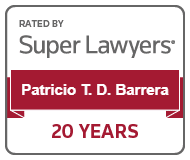If your employer is terminating your employment, they may offer you a severance package. While it’s not as good as keeping your job, at least you’re getting something in return for the time you spent with them.
You may be tempted to sign a severance agreement on the spot and move on with your job search, but don’t be so fast to put pen to paper. There are a few things you should first thing about:
- Your employment contract: If your contract outlines the type of severance agreement you’re in line to receive, be sure that the terms and conditions match.
- Money owed: Remember, there’s more to a severance agreement than severance compensation. You may be owed other money, such as a final paycheck, unreimbursed expenses, vacation days and personal days.
- Employee benefits: This is every bit as important as the compensation you receive. The severance agreement should outline the benefits you will receive after you’re no longer employed. This can include things such as the continuation of health, disability and life insurance.
- Restrictions: This will impact your future, so it’s a must to understand. Are there any non-compete and non-solicit agreements that will cause issues during your search for a new job?
Should you be presented with a severance agreement, don’t sign it and move on. Instead, tell your employer that you want to take a few days to read it over and better understand the terms and conditions.
From there, you can decide if you should sign the severance agreement, reject it or negotiate with the idea of getting more.





